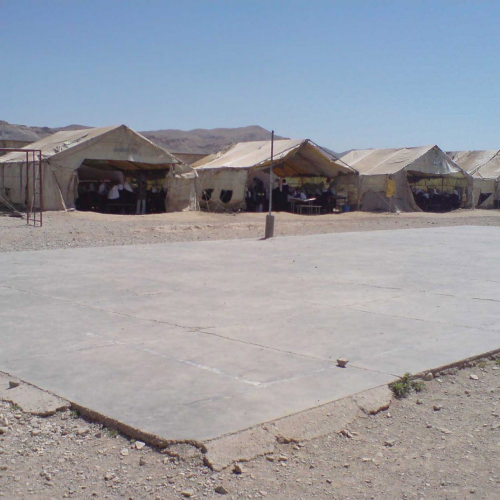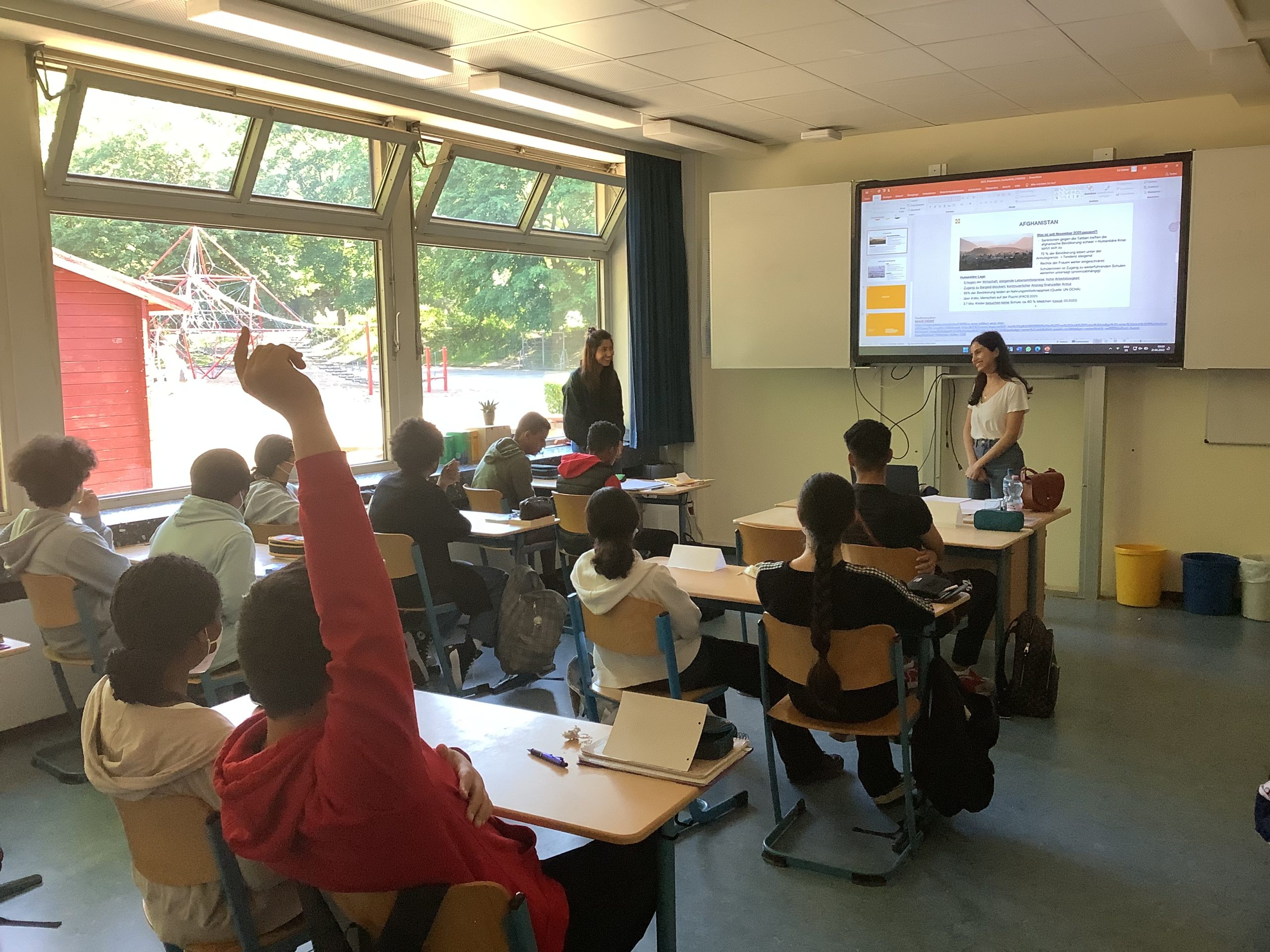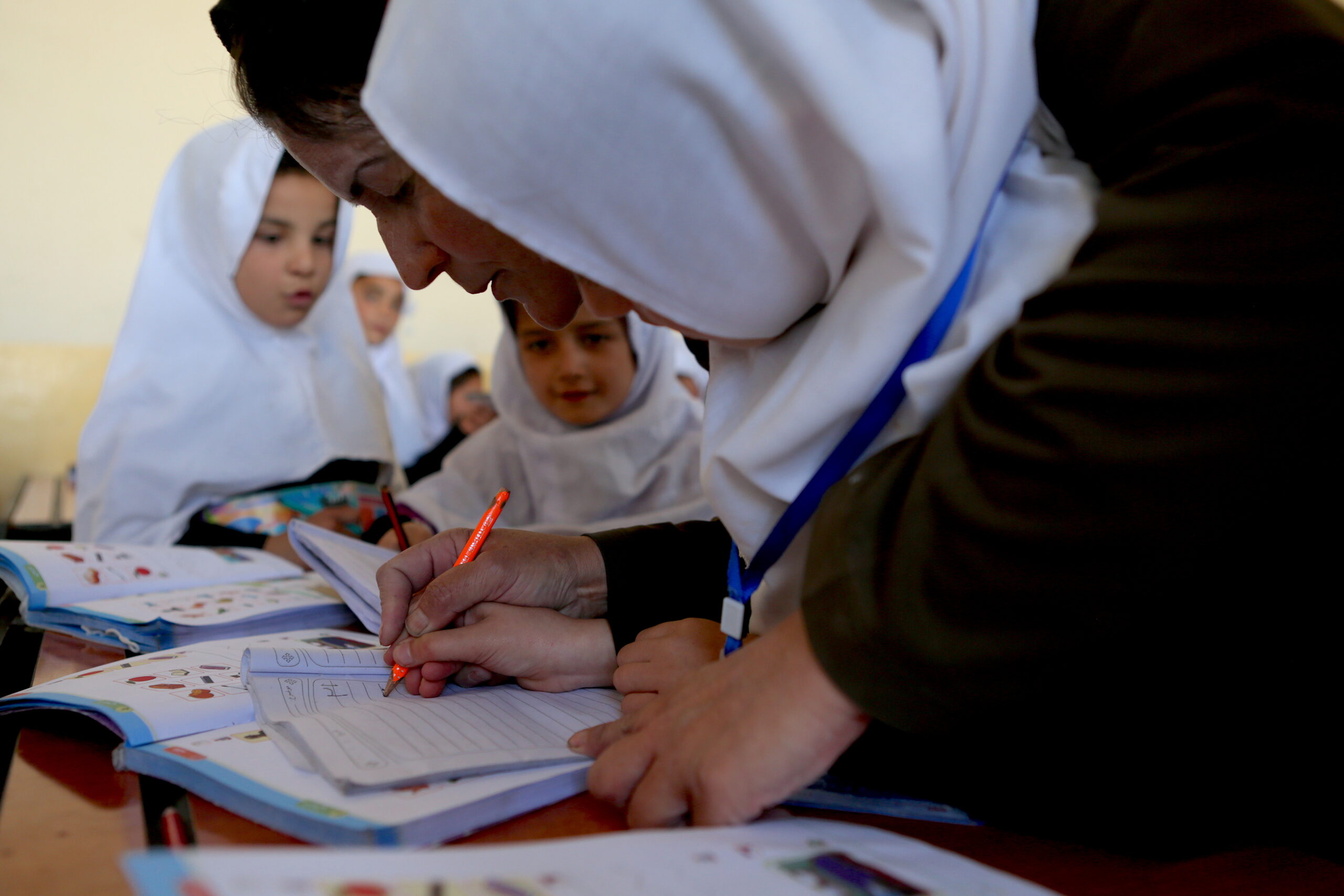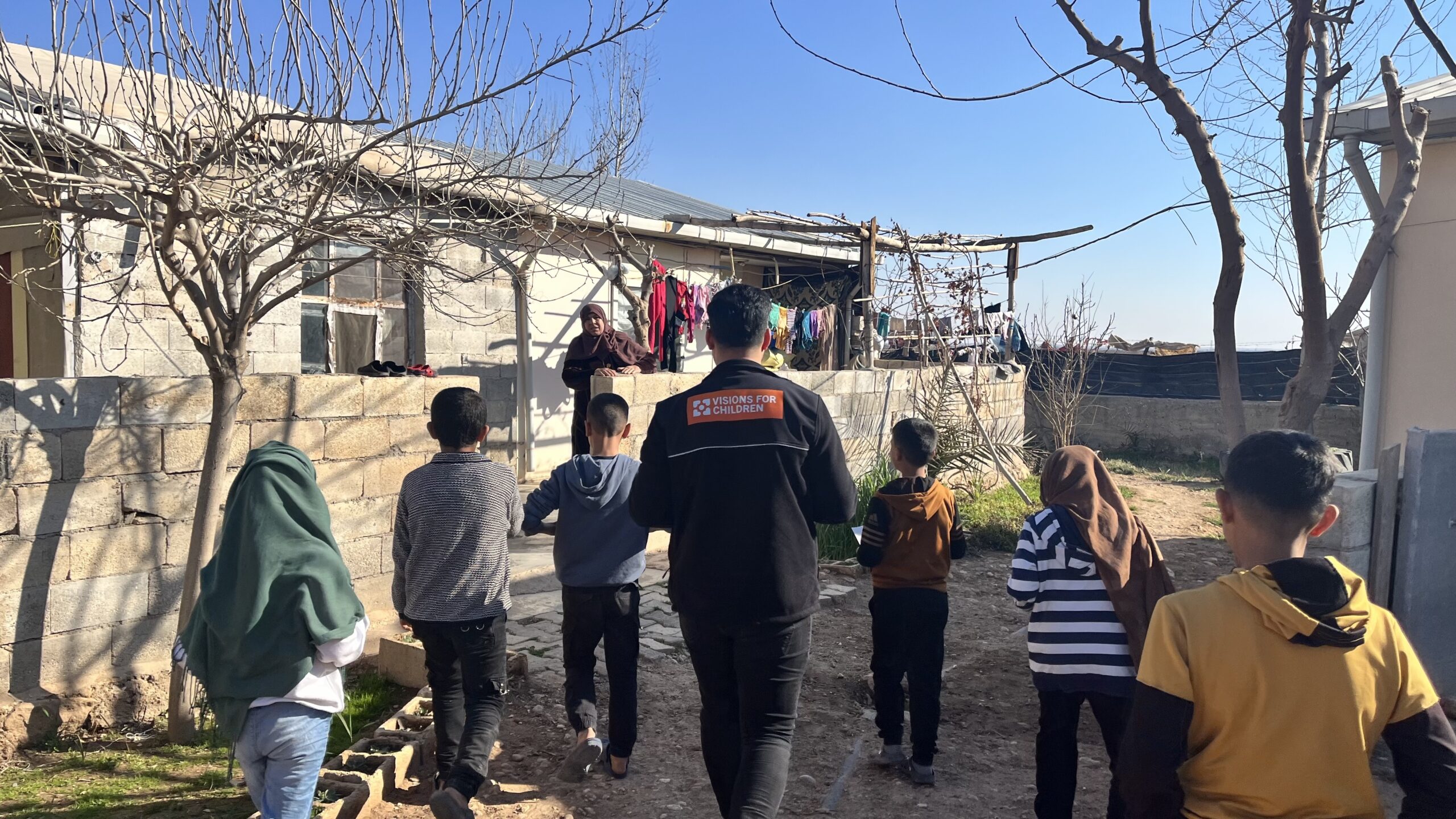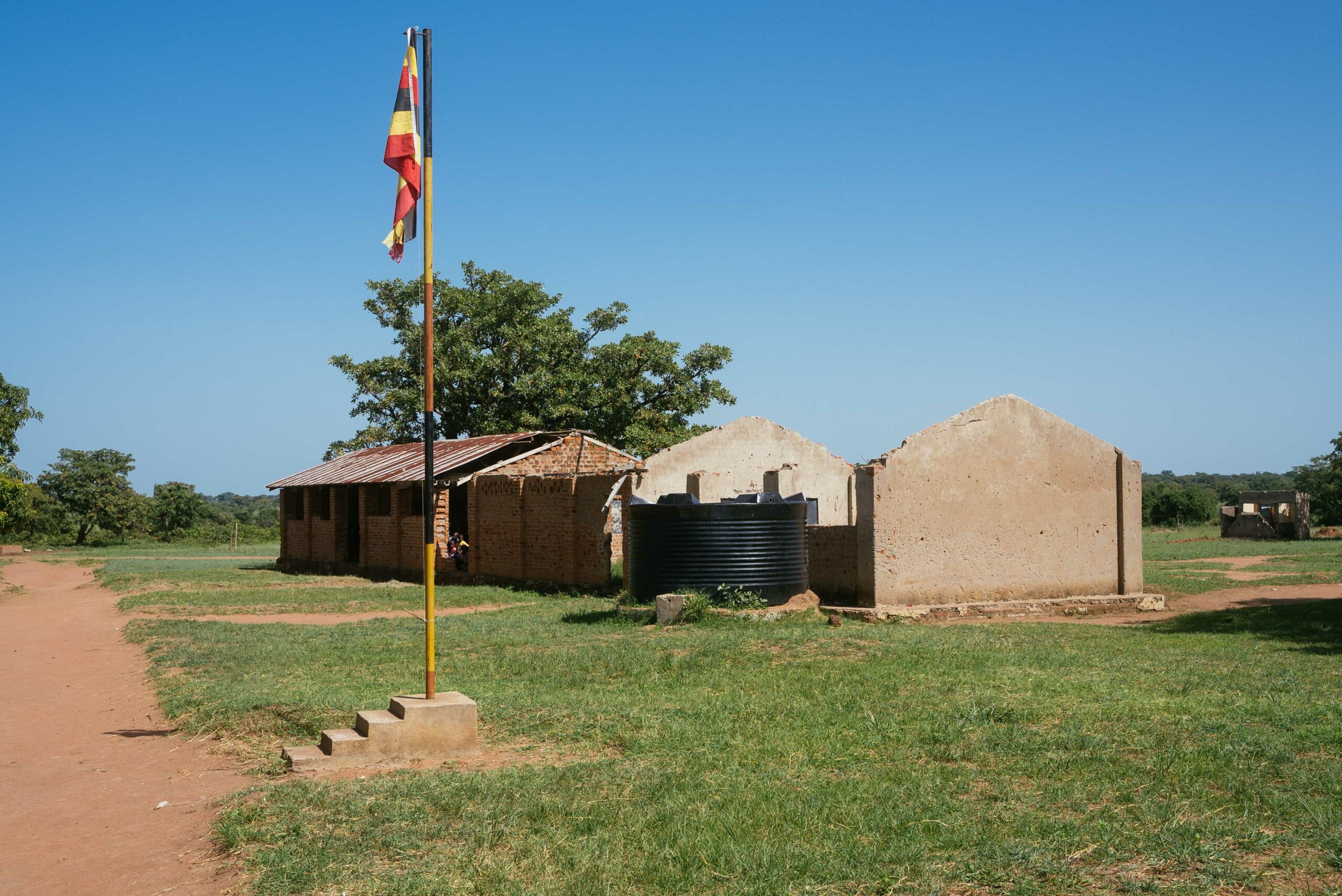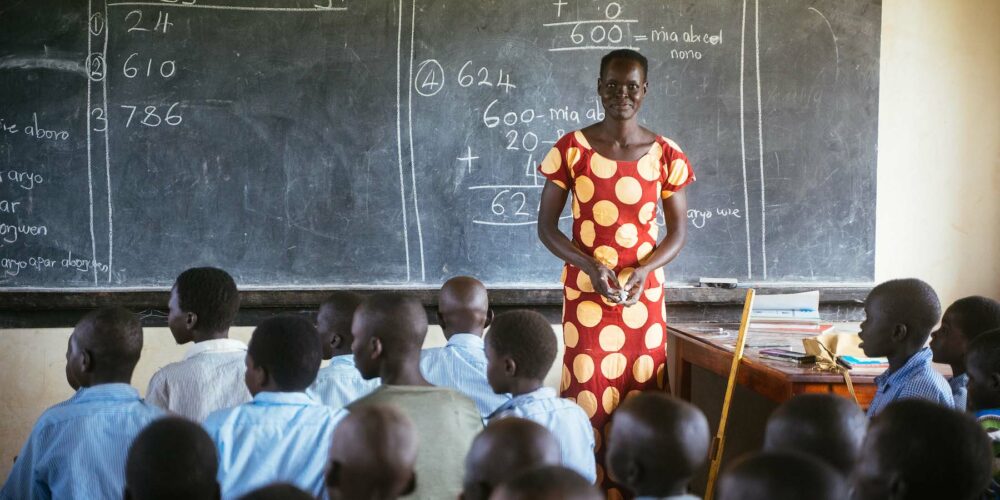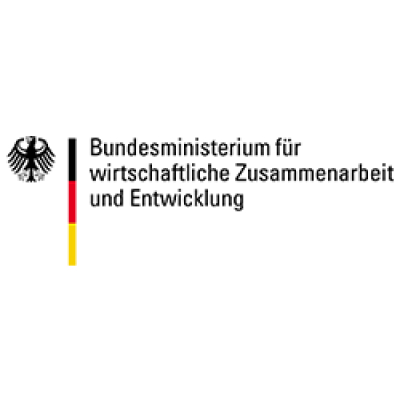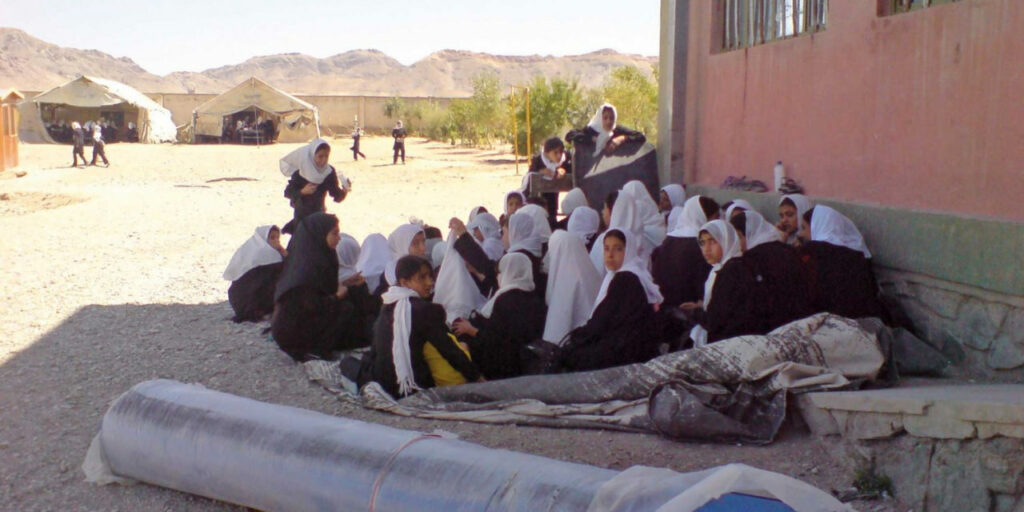
Fekri Saljouqi Comprehensive School
Completed
The location of our project is north of the city in the Gasergah desert, far away from the nearest residential area. The state comprehensive school “Fekri Saljougi” was founded in 1985. Around 5,000 pupils attend the school and are taught in two shifts, in 20 different classrooms and several tents by 145 permanent employees and 15 volunteers.
INITIAL SITUATION
The “Fekri Saljouqi” comprehensive school receives hardly any support from the state apart from salaries. The mother of our former association member Jawid Sultany was a teacher at this school, which is how we became aware of the school in 2009 and included it in our project portfolio. At that time, the children were still exposed to the weather conditions without any protection. A lack of heating and water supply made the situation even worse. This is where we started our work and provided the children with warm clothing, among other things.
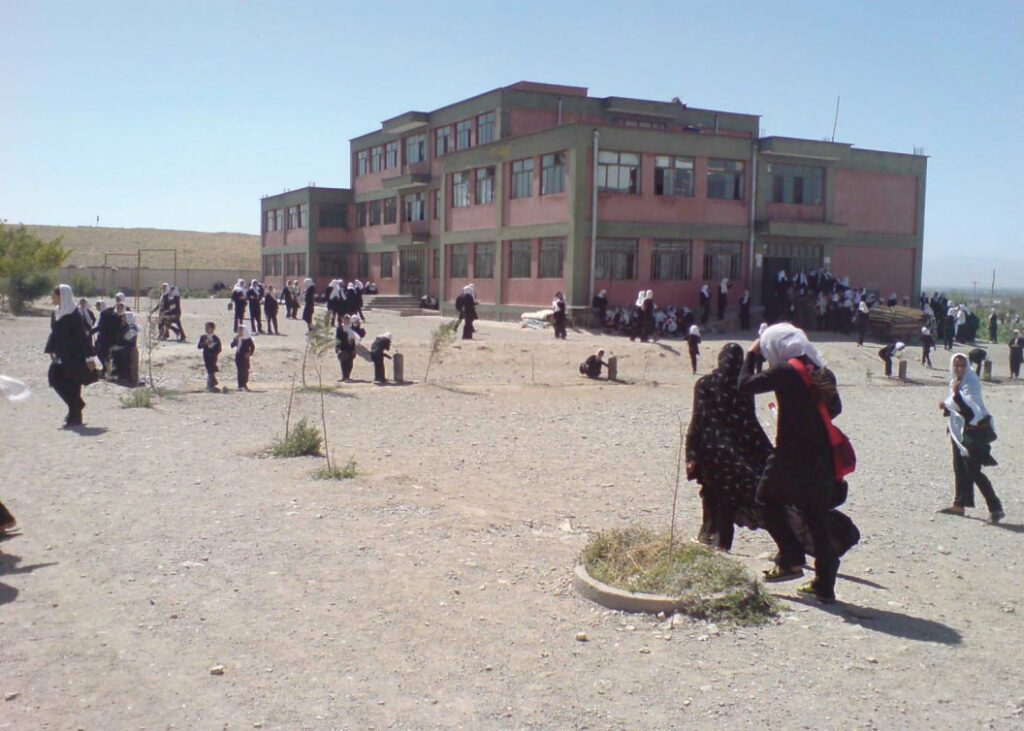
PROBLEM AND SOLUTION
The main problem of the “Fekri Saljouqi” school is the lack of classrooms in relation to the high number of pupils, which is why lessons have to take place in sparsely furnished tents that are not weatherproof. The school’s main building is in a dilapidated state and the existing classrooms are poorly equipped, which severely impairs the pupils’ learning success.
The lack of heating in the school building leads to health problems for both pupils and teaching staff on colder days. The lack of water supply forces the pupils to walk to the nearest fountain 2 km away during the breaks to quench their thirst. The younger pupils cannot manage this distance during the break, so they have to go without drinking until the end of the school day.
Visions for Children e.V. tackled the problem areas. The first immediate measure was to provide the children with high-quality drinking bottles to save them the long daily walk to the well. The next step was to provide winter-proof clothing. In addition, our member Jawid equipped the teaching tents with thick carpets so that the children no longer have to follow their lessons on the hard, dusty or sometimes muddy ground.
